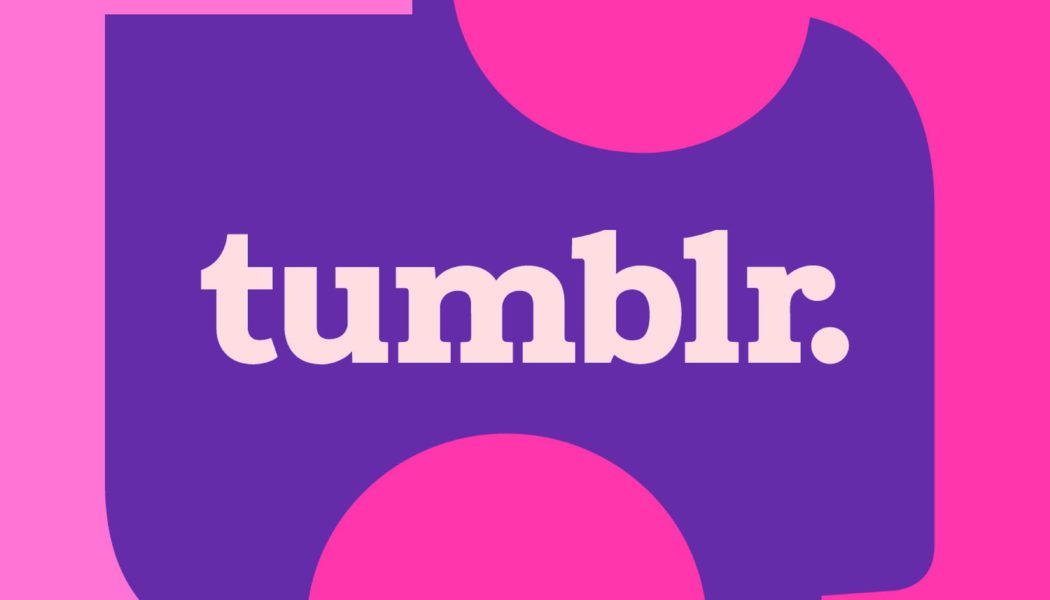The social network failed to hit the growth targets its new owner set in 2019. But were they ever compatible with what Tumblr does best?
Share this story

In 2020, I wrote that “reports of Tumblr’s death have been greatly exaggerated.” An infamous ban on adult content in 2018 had sent users fleeing the platform, but it continued to be a safe haven for artists, fandoms, and users seeking a non-algorithmic alternative to social media. Now, almost four years later, it’s undergoing another transformation. And its death might have been prematurely proclaimed again.
Tumblr’s palpable influence on culture has waned since its soft-grunge, Superwholock heyday, but millions of users are using it every single day. Caroline Ellison’s rationalist Tumblr (archived here) documented her crypto-trading, effective altruist lifestyle, and provided food for analysis for dozens of think pieces. Memes like “gaslight gatekeep girlboss” and Goncharov got their start on Tumblr and spread quickly across the social web, and nostalgia for Tumblr has never been more prevalent on TikTok.
Some of Tumblr’s new user base might be attributed to new ownership. In 2019, its owner Verizon sold it to WordPress.com operator Automattic, which attempted to revitalize it with features like a livestreaming service and collectible badges. But the largest gains can be blamed on the poor decisions of other platforms. Tumblr saw an influx of Twitter users fleeing Elon Musk’s takeover, and then another wave during protests against Reddit’s changes to its API.
In contrast with the precipitous fallings-off of platforms like Myspace and LiveJournal, the decays of which have been clear and irreversible, Tumblr has kept defying expectations and stayed somewhat thriving against all odds. That is, in part, thanks to the guidance and guardianship of Automattic, which acquired Tumblr for the bargain-bin price of $3 million.
These increases, though, have not been enough. In an internal memo circulated last month and leaked on-platform as well as off last week, Matt Mullenweg, the CEO of Automattic and of Tumblr since 2021, said that the efforts to increase Tumblr’s revenue and usage have not been effective. As consequence, those efforts would cease and a majority of the staff would be reassigned to different departments within WordPress and Automattic. This news was immediately picked up by aggregators and commentators who declared that Tumblr had “failed” and would henceforth be run by a “skeleton crew.”
Mullenweg, to his credit, spent hours last Thursday answering questions (or “asks” in Tumblr parlance) on his own blog in order to dismiss these rumors and assure users that Tumblr would carry on. “I think the internet needs Tumblr to exist. A space for art and artists, being yourself,” he told a user with the classic Tumblr url @femboycomrade. He also posted text from the original memo which had not been included in the original leak, such as this paragraph which provides a vital road map for the future of the platform:
We are shifting from the mode of “surging” on Tumblr with tons of people to get it to exciting growth, to working on how we can run Tumblr in the most smooth and efficient manner. Pretty amazing things in the social and messaging space have been accomplished with small teams, so I’m actually quite curious to see a smaller and more focused Tumblr’s performance in 2024.
Most importantly, Mullenweg clarified that the 139 “Bumblr” staff members who would be mostly reassigned were all part of the product team: the engineers and product managers who deal with developing and implementing new features for the site. Teams such as marketing, trust & safety, and international localization would remain in place with no changes as Tumblr moves into a maintenance phase of its existence.
It’s quite possible that a “maintenance phase” is precisely what Tumblr needs to preserve its community and its historical importance as a generator of culture.
The need for Tumblr to grow at any cost has frequently put the platform at odds with its thriving, creative community. Many of the new features introduced on Tumblr have not been welcomed. It’s a long-standing inside joke that users will immediately reject any change to their precious Tumblr, taking a long time to finally adjust and accept it. The livestream feature is still particularly unpopular, with Mullenweg facing criticism during his Q&A for its persistence. (Apparently, a deal with the video service provider requires promoting it through the end of the year.)
Tumblr moving away from a growth strategy also aligns with the larger movement toward smaller and decentralized social media, characterized by the dispersal of Twitter’s users onto platforms like Bluesky, Mastodon, Discord, and even back to Tumblr itself. “Every future for Tumblr that I’m involved in will include it being more open, supporting more standards, APIs, and open source,” Mullenweg promised one Tumblr user — although support for the decentralized ActivityPub protocol, which is supported on WordPress, hasn’t materialized.
Sustainable social media — it’s a novel thought, perhaps even an encouraging one. Degrowth is not obsolescence. As Ernie Smith of Tedium pointed out, maybe having to scale down isn’t the end of the world and can even be a good thing. In Tumblr’s case, of course, the shrinkage is due to necessity, not philosophy, but there might be a silver lining nonetheless.
Though it is a flexible platform which can be used by anyone to spin up a blog or a personal website, and during its peak in the early 2010s it had mainstream appeal across various demographics, Tumblr’s lasting impact is its role as a home for subculture. Multiple academic studies devoted to Tumblr’s impact have focused on its history as an incubator for youth culture, queer culture, pornography, and fandom. It’s the Velvet Underground of platforms — not everyone has or had a Tumblr, but so many people who did have gone on to make vital contributions to art, music, entertainment, fashion, and literature. Accounts on Instagram, TikTok, and YouTube make plenty of sweet ad cash aggregating Tumblr’s most creative and hilarious posts.
The irony is that if Tumblr adopted some of the features of those platforms, like real-name display names or a purely algorithmic feed, its posts might well cease to be as worthy of aggregation in the first place. Without visible follower counts or verification, and thus no direct route to becoming an influencer, Tumblr has fallen out of step with the rest of the platform ecosystem and provides a nostalgic reminder to users of how things used to be — and still sometimes are. It is the anarchistic, pseudonymous spirit of Tumblr — which has grown organically from the days when the platform couldn’t give a damn about being profitable — that keeps on making it such a fertile and creative place to spend time online.
It’s not necessarily an accurate sample size, of course, but many of the users participating in Mullenweg’s Q&A expressed their gratitude for Automattic’s efforts to preserve the culture of Tumblr that they treasure. Tumblr’s main products are the post editor and the reblog function. Flexible and modular, they provide fertile ground for creativity and interaction. As long as those don’t go away, neither will Tumblr’s existing community.
What is that culture? It’s fragile and raucous and intricate and raunchy all at once. Somewhat self contained and set apart from the rest of the internet, it’s both a relic of a past optimistic climate of user-generated, content-based platforms and a promise of the future of small, independent social media.
There is no inherent incompatibility between a slimmed-down Tumblr product and engineering team (perhaps assisted by AI as Mullenweg speculated earlier this year in an interview) and a content Tumblr user base. Tumblr might give up on the possibility of a massive influx of new users, but that never really seemed within its grasp, despite Mullenweg’s bullish post-acquisition goals. Instead, it may mean something that Tumblr’s long-term loyalists have wanted the whole time: the Tumblr they know and love, with no arbitrary changes or unwanted upgrades.
In an era when social media is increasingly algorithmic and video-forward, it makes sense that there is a very low chance for a text- and photo-heavy platform like Tumblr, which emphasizes personal connection and artistic inspiration over advertisement, to have a second life as massive as the first. Nor is it surprising that Automattic would strip back its spending on trying to make that happen. But Tumblr’s dedicated user base seems lucky enough to have a parent company which, despite that fact, is committed to letting it live on.









